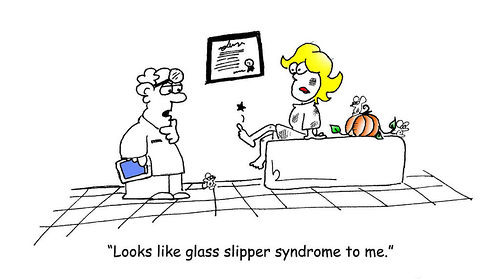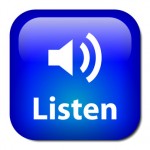
Show Notes:
1. Hypochondria is a health phobia that makes its sufferers believe that they are ill in the absence of disease. It is marked by constant worry about health issues.
a. This is an obsession that cannot be easily alleviated. Even a trip to the doctor is not enough to calm the nerves of a hypochondriac.
b. A hypochondriac will usually focus on a part of the body or certain types of disease. An example would be an intense focus on the heart because of palpitations .
c. This is a condition characterized by incessant worry which is exactly why people that suffer from anxiety disorder will sometimes also have hypochondria. All though associated with anxiety disorders like OCD , hypochondria can also affect people with General anxiety disorder, Post Traumatic Stress Disorder, social anxiety disorder or agoraphobia.
d. Someone with hypochondria may also examine themselves frequently and do extensive research on different diseases and their symptoms. If the internet disease search becomes a regular habit then a person can be deemed a cyberchondriac .
2. Degrees of Hypochondria
a. There are various degrees and manifestations of hypochondria. The most common is to have intrusive thoughts about ones health that cause a person to seek constant advice and help from friends, family and doctors in addition to just thinking they are sick.
b. There are also others that behave in the exact opposite way. These people avoid medical attention at all cost but are still extremely concerned about their health.
c. The last group is so concerned with their health that they become convinced that they are terminally ill and become clinically depressed as a result.
3. Treatment
a. One of the most effective ways to treat hypochondria is Cognitive Behavioral Therapy . This is a set of therapies that generally aim at changing how you think in order to remove the negative associations you have built up over time.
b. Drugs such as selective serotonin reuptake inhibitors are also effective in conjunction with therapy on a short term basis. I would suggest you avoid drugs if at all possible, but you should speak with your doctor if you feel you need them.
c. And of course acceptance, letting go, patience, exercise, education, positive thinking, meditating, and breathing techniques are all good methods to employ.
d. Using various methods at the same time is the most effective way to combat your anxiety and therefore your hypochondria.
4. Conclusion
a. Ultimately having hypochondria does not mean you’re crazy. In fact under the circumstances it is normal and something that can easily develop. This is because as an anxiety sufferer you worry a great deal and sometimes that worry needs and finds a focus.
b. In the case of hypochondria the focus is your health. It becomes an obsession that overtime wears you down and leaves you even more susceptible to this cruel condition. I know what its like to go to the doctor and have a doctor look at you as if you were crazy.
c. This is why it’s so important to find a doctor that is compassionate and not subtlety ridiculing . You need someone with patients and understanding to be on your side. On the other hand, you have to take responsibility for your condition and not do anything to add fuel to the fire.
d. Limit your time on internet medical sites and most of all try your best to not blow things out of proportion. Sometimes what we need is a realty check and realize that we are in fact healthy. We have to accept this very good news. If you fail to do this hypochondria can make you sick through a psychosomatic effect.
e. Your mind is very powerful and the last thing you want to do is to trick yourself into true illness. It’s true that anxiety can make you feel nasty things but don’t let it create a hellish reality visa via your hellish thoughts. It is all a cycle, body to mind, mind to body. You have to be aware of this very real connection and not stress about things that do not exist. We are all mortal so eventually yes you will pass on, but instead of thinking about that, think about the life you have now.
Music:
1. Vegetation: Each One Feel It
2. George Wood: Achievement Unlocked
Recommended Reading:Change Your Brain, Change Your Life: The Breakthrough Program for Conquering Anxiety, Depression, Obsessiveness, Anger, and Impulsiveness






i had unprotected oral sex on june 21st to be exact, from then i had never felt well. after 10 days i did a pcr test for hiv it came out negative, i did another pcr after 30 days and an elisa all came out negative. at 60 days i did an elisa it came out negative and at 30 days did a rapid test it came out negative aswell. doctors and councelours have told me am ok, but i cant realy get myself to accept thier oppinions. ever since i feel like my neck has swelled up, my lymph nodes have sweeled up too, though doctors have checked and said am ok. right now i feel som movements under my jaw and neck. could this be hypochondria? how long does hypochondria take to heal? can i have an anxierty attack and not be aware that its happening? kindly help need my life back.
Hey Collins,
I hope you’re doing well. To answer your question the time it takes to heal hypochondria depends on how well you manage your anxiety.
The fact is if you’ve been tested and re-tested by doctors than the first thing you should do is accept their determination. You don’t have HIV/AIDS.
Anxiety has a way of playing tricks on our minds and feelings. It all becomes about what MIGHT happen. We tend to lose sight of what is actually happening.
Do what you can to live in the present and focus on facts and not what if scenarios.
Hopefully you will take more care in the future, take the doctors information as fact and relax as much as you can.
Be safe and remember you will be fine.
Thank you Paul!
Can relate, for 2-3 months have been experiencing back,stomach, pelvic pain, heart palpitations. Have had colonoscopy, endoscopy, ultrasound,CT scans,MRI, all basically negative along with blood work. Doctors have told me “you don’t have a terminal illness”! Yet I’m filled with anxiety symptoms and panic. It has significantly negatively impacted my life. Seeing a psychologist, have been prescribed medication which I am reluctant to take afraid of side effects. Feel as though I’m in a downward spiral, however at times when I’m feeling OK physically, I see things rationally and OK.